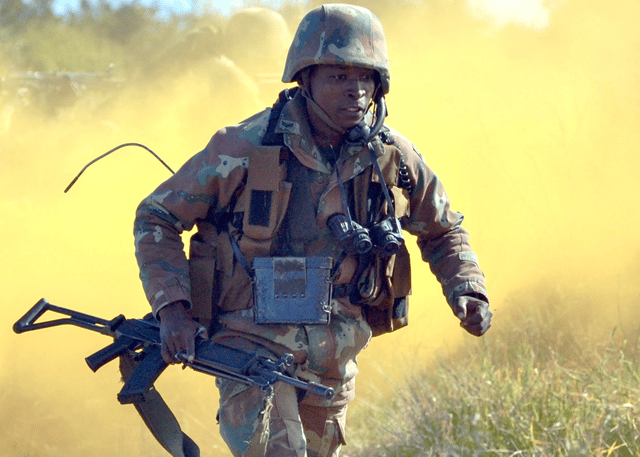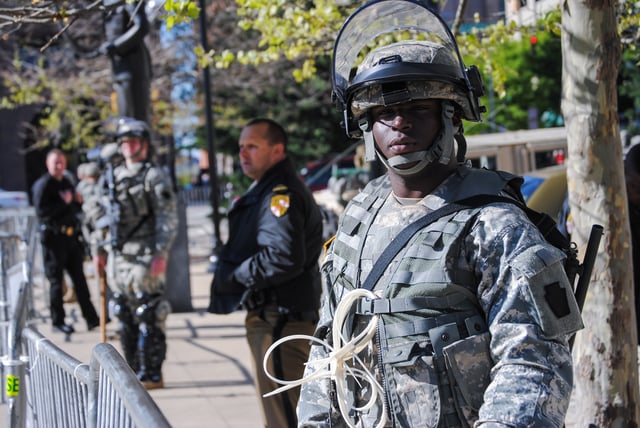Soldier

Soldier

| Occupation | ||
|---|---|---|
| Profession | ||
| Military | ||
| Description | ||
| Competencies | PhysicalStaminaMindset | |
| Armies and fireteams | ||
| Airman SailorMarineCommandoMercenary | ||
| Navies | Armies | Air forces |
| Admiral of the fleet | Field marshalGeneral of the army | Marshal of the air force |
| Admiral | General | Air chief marshal |
| Vice admiral | Lieutenant general | Air marshal |
| Rear admiral | Major general | Air vice-marshal |
| Commodore | Brigadier brigadier general | Air commodore |
| Captain | Colonel | Group captain |
| Commander | Lieutenant colonel | Wing commander |
| Lieutenant commander | Majorcommandant | Squadron leader |
| Lieutenant | Captain | Flight lieutenant |
| Lieutenant junior gradesub-lieutenant | Lieutenant first lieutenant | Flying officer |
| Ensignmidshipman | Second lieutenant | Pilot officer |
| Officer cadet | Officer cadet | Flight cadet |
| Warrant officerchief petty officer | Warrant officer sergeant major | Warrant officer |
| Petty officer | Sergeant | Flight sergeant |
| Leading seaman | Corporalbombardier | Corporal |
| Seaman | Privategunnertrooper | Aircraftmanairman |
| Talk·View | ||

A U.S. soldier on riot control duty

Mexican soldier manning a vehicle-mounted machine gun
A soldier is one who fights as part of an army. A Soldier can be a conscripted or volunteer enlisted person, a non-commissioned officer, or an officer.
| Occupation | ||
|---|---|---|
| Profession | ||
| Military | ||
| Description | ||
| Competencies | PhysicalStaminaMindset | |
| Armies and fireteams | ||
| Airman SailorMarineCommandoMercenary | ||
| Navies | Armies | Air forces |
| Admiral of the fleet | Field marshalGeneral of the army | Marshal of the air force |
| Admiral | General | Air chief marshal |
| Vice admiral | Lieutenant general | Air marshal |
| Rear admiral | Major general | Air vice-marshal |
| Commodore | Brigadier brigadier general | Air commodore |
| Captain | Colonel | Group captain |
| Commander | Lieutenant colonel | Wing commander |
| Lieutenant commander | Majorcommandant | Squadron leader |
| Lieutenant | Captain | Flight lieutenant |
| Lieutenant junior gradesub-lieutenant | Lieutenant first lieutenant | Flying officer |
| Ensignmidshipman | Second lieutenant | Pilot officer |
| Officer cadet | Officer cadet | Flight cadet |
| Warrant officerchief petty officer | Warrant officer sergeant major | Warrant officer |
| Petty officer | Sergeant | Flight sergeant |
| Leading seaman | Corporalbombardier | Corporal |
| Seaman | Privategunnertrooper | Aircraftmanairman |
| Talk·View | ||
Etymology
The word soldier derives from the Middle English word soudeour, from Old French soudeer or soudeour, meaning mercenary, from soudee, meaning shilling's worth or wage, from sou or soud, shilling.[1] The word is also related to the Medieval Latin soldarius, meaning soldier (literally, "one having pay").[2] These words ultimately derive from the Late Latin word solidus, referring to an Ancient Roman coin used in the Byzantine Empire.[1][2]
Occupational designations
In most armies use of the word "soldier" has taken on a more general meaning due to the increasing specialization of military occupations that require different areas of knowledge and skill-sets.
As a result, "soldiers" are referred to by names or ranks which reflect an individual's military occupation specialty arm, service, or branch of military employment, their type of unit, or operational employment or technical use such as: trooper, tanker (a member of tank crew), commando, dragoon, infantryman, artilleryman, paratrooper, grenadier, ranger, sniper, engineer, sapper, craftsman, signaller, medic, or a gunner.
Other terms
In many countries soldiers serving in specific occupations are referred to by terms other than their occupational name.
For example, military police personnel in the British Army are known as "red caps" because of the colour of their caps (and berets).
Infantry are sometimes called "grunts" (in the United States Army) or "squaddies" (in the British Army), while U.S. Army artillery crews, or "gunners," are sometimes referred to as "redlegs", from the service branch color for artillery. U.S. soldiers are often called "G.I.s" (short for the term "General Issue").
French Marine Infantry are called marsouins (French: porpoises) because of their amphibious role. Military units in most armies have nicknames of this type, arising either from items of distinctive uniform, some historical connotation or rivalry between branches or regiments.
Career soldiers and conscripts
Some soldiers, such as conscripts or draftees, serve a single limited term. Others choose to serve until retirement; then they receive a pension and other benefits. In the United States, military members can retire after 20 years.[3] In other countries, the term of service is 30 years, hence the term "30-year man".
Women as soldiers
See also
Airman
Marine